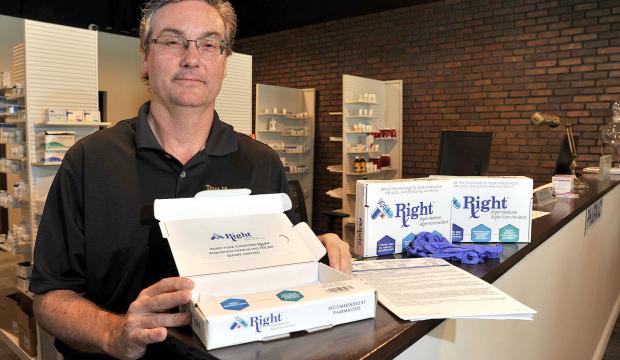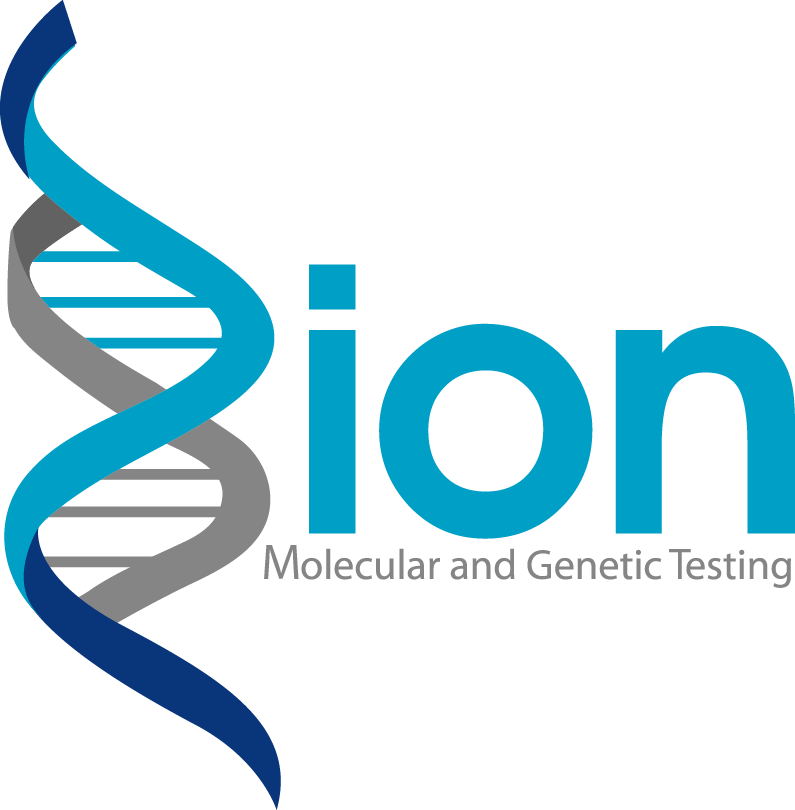
Todd Troxell, the pharmacy manager at Trox Pharmacy, holds a Rxight genetic test on Friday, July 21, 2017 (Bruce Lipsky/Florida Times-Union)
If Chuck Dushman were given Plavix, a blood thinner often given to people who have undergone the placement of a stent in a coronary artery, he would be at high risk of becoming a statistic: one of the 2 million Americans who suffer adverse drug reactions each year and perhaps one of the 100,000 Americans who die annually as the result of an adverse drug reaction.
Dushman hasn’t undergone a stent procedure. But he has been tested to see what drugs could potentially create an adverse reaction if he took them. He is vice president of Rxight, a company that does pharmacogenetic testing that can identify how a person’s body will react to about 280 drugs, both prescription and over-the-counter.
Having undergone the test, Dushman can now share the results with physicians who are treating him.
“They can start me on the right medication,” he said.
The first pharmacist to offer the Rxight (pronouced right) test in the Jacksonville area is Todd Troxell.
Troxell had been a pharmacist at Baptist Medical Center South since the hospital opened in 2005. But late last year Baptist Health announced it was closing that pharmacy. Troxell decided to open his own pharmacy at 14965 Old St. Augustine Road, Suite 108, not far from Baptist South.
One of the reasons he decided to go into business for himself rather than seek a job with a chain pharmacy is that he wanted to begin offering the Rxight test.
“I left Baptist South knowing I was going to do this,” he said. “I wanted to be able to help my customers know if a medication is going to work. I’m helping people, which is what I wanted to do when I went to pharmacy school.”
Taking medication without getting genetic testing done is “like playing Russian roulette,” Troxell said.
Customers who chose to get the testing done swab the inside of their cheeks. The swab is then sent to Rxight’s labs. Detailed results are then returned to Troxell, who goes over the results with each customer. The report indicates which drugs are likely to be effective, which drugs may not be effective and which drugs are potentially dangerous to a patient.
Troxell doesn’t do the test, which costs $399 and is covered by some insurance plans, unless he has permission from the customer’s physician.
Steve Kavanaugh, a licensed mental health counselor who lives in St. Johns County, underwent the testing because he suspected he had a genetic condition that was causing him to be frequently sick.
“I was foggy and susceptible to colds,” he said.
The test determined that one of his genes was preventing him from properly processing folic acid, allowing a build up of methalated folic acid that was toxic to him. To counteract that, he takes less folic acid and has begun taking magnesium.
He also discovered he shouldn’t take opiates like codeine or hydrocodone because his system processes those drugs too rapidly.
He praised Troxell for the careful way he explained the results.
“Todd does not offer medical advice,” he said.
Dushman said that many commonly prescribed drugs are either ineffective or dangerous to surprisingly large groups of people: 38 percent won’t respond to any anti-depressant; 40 percent won’t respond to asthma medications; 30 percent of people, like him, are at risk if given Plavix.
Follow the Link below to read the full article
